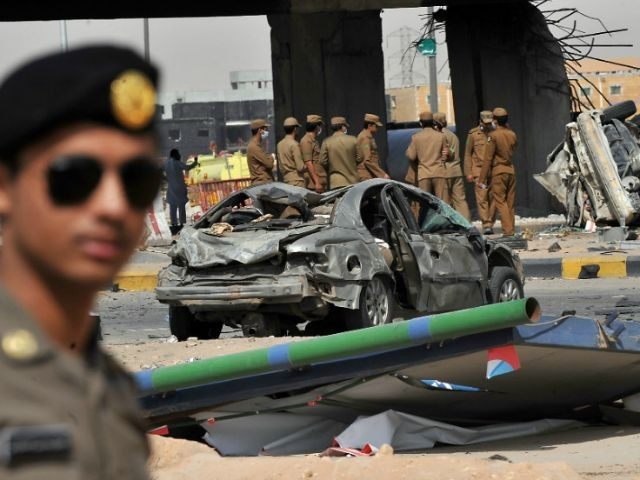Saudi Arabia’s Ministry of Interior has announced the arrest of 431 suspected terrorists linked to Islamic State, preventing suicide attacks on mosques, security forces and a diplomatic mission.
The announcement came after Islamic State (IS) claimed responsibility for Thursday’s car bomb attack at a security checkpoint in Riyadh near Saudi Arabia’s highest security prison, which killed the driver and wounded two security officials.
The Wall Street Journal reports the arrests were made over the past few weeks but a spokesman for the interior ministry, Maj. Gen. Mansour al-Turki, said: “We didn’t want to make this announcement during the holy month of Ramadan.” Ramadan ended on Friday.
According to the Ministry of Interior those under arrest are mostly Saudi citizens, but other nationalities featured “including Yemeni, Egyptian, Syrian, Jordanian, Algerian, Nigerian, Chadian, and unidentified others.”
The official announcement explained some of the arrests. Some were arrested for planning “so-called operations of ‘solo wolf’ aimed at inciting sectarian strife…according to orders received from the deviant organisation abroad.”
The smuggling and provision of weaponry and chemical fertilisers, the manufacture of explosive belts, technical assistance and other activities in support of attacks such as surveying potential attack sites and providing transport were also cited. In addition some were arrested for “working to spread the deviant thought via the Internet.”
Perhaps most significantly the Ministry of Interior arrested Hadi Kotaim Shaibani. He is a Saudi citizen, believed to be the coordinator between IS leaders outside the kingdom and those within.
Reuters reports that a series of terrorist attacks in Saudi Arabia carried out by IS supporters fuelled concerns of a growing threat of militancy in the world’s top oil exporter. IS says its priority target is the Arabian peninsula, in particular Saudi Arabia (which houses some of Islam’s holiest places), from where it plans to expel Shi’ite Muslims. The destabilising effects of such a campaign could have worldwide economic consequences owing to the importance of the Saudi energy industry.
The Wall Street Journal notes this is not the first time Saudi Arabia has been targeted by Islamist militants. Al Qaeda waged a similar campaign in the country between 2003 and 2006, but it was defeated. The rise of IS is said to be a different challenge, with Saudi officials admitting the group’s planning and recruitment is more sophisticated.

COMMENTS
Please let us know if you're having issues with commenting.